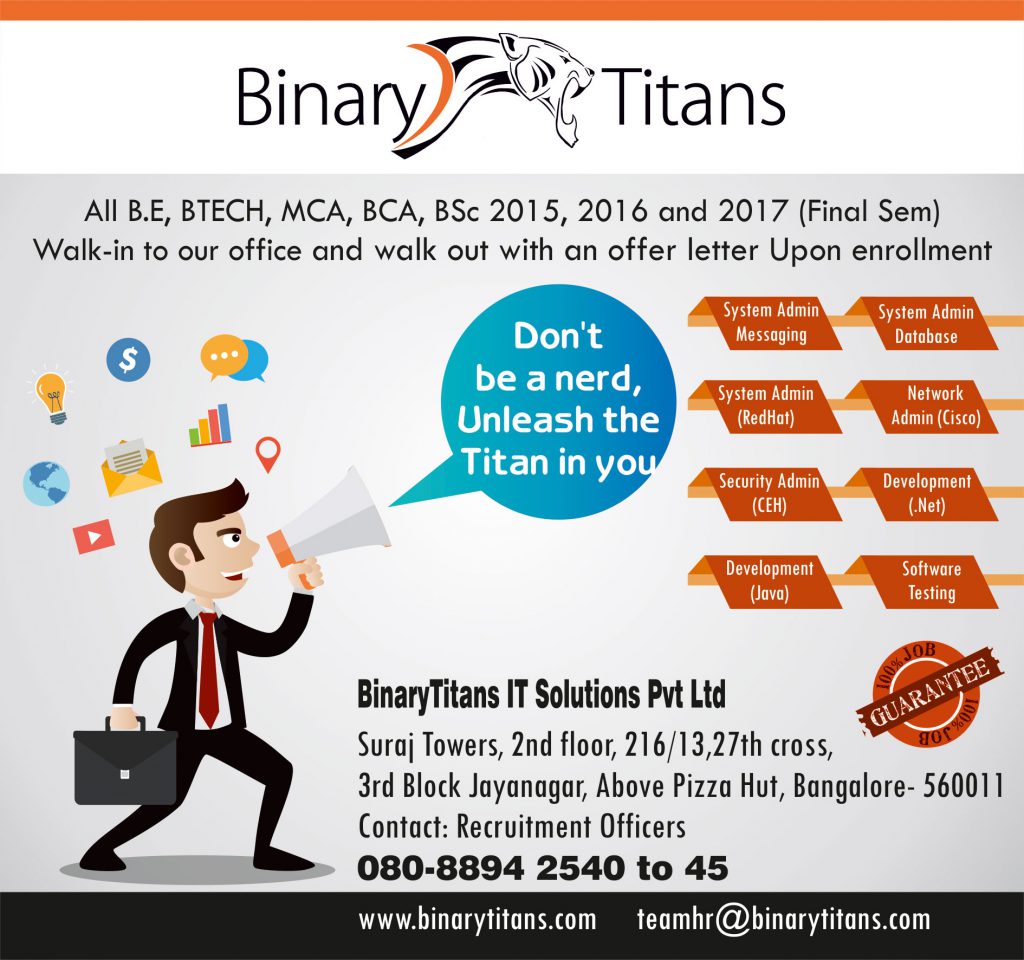Learn C# – Blog Series by BinaryTitans – Part 3
The .Net Framework
Using .Net framework we can write the following types of applications:
- Windows applications
- Web applications
- Web services
They are multi-platform applications. The framework has been designed in such a way that it can be used with many languages such as C#, C++, Visual Basic, Jscript, COBOL, etc.
Components of the .Net framework:
- Common Language Runtime (CLR)
- The .Net Framework Class Library
- Common Language Specification
- Common Type System
- Metadata and Assemblies
- Windows Forms
- ASP.Net and ASP.Net AJAX
- ADO.Net
- Windows Workflow Foundation (WF)
- Windows Presentation Foundation
- Windows Communication Foundation (WCF)
- LINQ
Common Language Runtime or CLR
It performs memory management, exception handling, debugging, security checks, thread execution, code execution, code safety, verification, and compilation. The code that is directly managed by the CLR is called the managed code.
When we compile the managed code, the compiler converts the source code into a CPU independent intermediate language (IL) code. A Just In Time(JIT) compiler compiles the IL code into native code, and this will be CPU specific.
.Net Framework Class Library
Here we get a library of reusable types. classes, interfaces, structures, and enumerated values.
Common Language Specification
Defines .Net supported languages and and how to integrate the same.
Common Type System
Guidlines for declaring, using, and managing types at runtime, and cross-language communication are present here.
Metadata and Assemblies
Metadata is the binary information describing the program.
Assembly is a collection consisting of the assembly manifest, type metadata, IL code, and a set of resources like image files.
Windows Forms
Graphical representation of any window displayed in the application.
ASP.NET and ASP.NET AJAX
ASP.NET is the web development model.
ASP.NET AJAX contains the components that allow the developer to update data on a website without a complete reload of the page.
ADO.NET
This is used while working with data and databases.
Windows Workflow Foundation (WF)
We can create workflow-based applications in Windows. It contains
- Activities
- Workflow runtime
- Workflow designer
- Rules engine.
Windows Presentation Foundation
It helps in developing visually stunning interfaces using documents, media, two and three dimensional graphics, animations, and more.
Windows Communication Foundation (WCF)
This is used for building and executing connected systems.
Windows CardSpace
We can safely access resources and share personal information on the internet.
LINQ
Syntax is similar to the tradition query language SQL and it imparts data querying capabilities to .Net languages.
